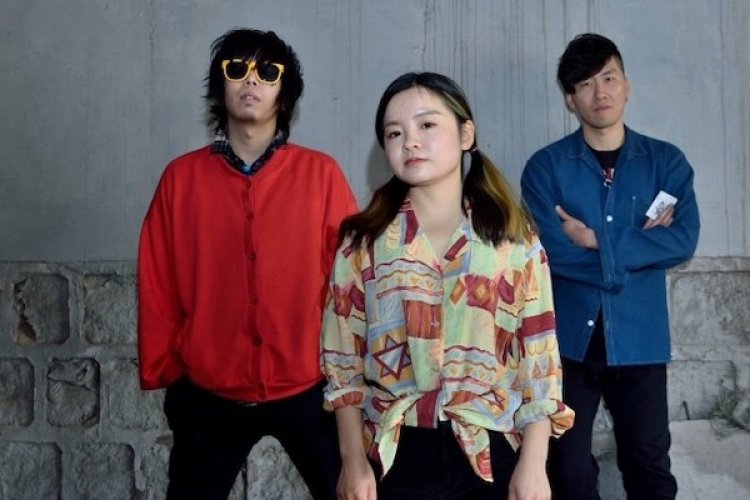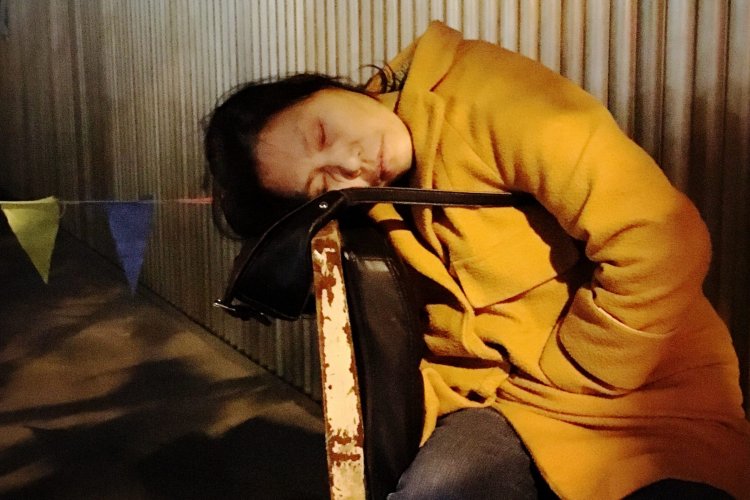Afterquake: Fusing folk and electronica for victims of the Sichuan earthquake
With all that has transpired in the past twelve months, it’s hard to believe just a year has passed since the devastating May 12 earthquake that decimated parts of Sichuan. While life goes on here in Beijing, many of the survivors of the quake are still slowly rebuilding their lives. To commemorate this momentous tragedy, acclaimed folk artist Abigail Washburn (The Sparrow Quartet) and producer David Liang, the founder of the Shanghai Restoration Project, have teamed up on a project fusing their field recordings of Sichuan folk songs and ambient sounds with a mélange of electronica textures and hip hop-laced beats. The result is Afterquake, a seven-song benefit ep that comes out on the one-year anniversary May 12th. We spoke with both collaborators about what inspired the project, how it was put together and their individual plans for the future.
Dave, what’s your background and what brought you to China?
D: I am ethnically Chinese but was born and raised in the United States. I started coming to China during college and really fell in love with the place. I currently reside in New York City and try to visit China a few times a year. I grew up playing classical piano and transitioned to jazz when I was in high school. I played in a rock band in high school, composed music for theatrical productions in college, and even conducted a choral group. My first foray into commercial music was with Bad Boy Records (P Diddy’s hip hop label in the US).
Where were you when the earthquake happened? What was going through your mind when you found out? Did you have any friends personally affected by the quake?
When and how did you get the idea to do this project? What was it like performing and visiting the schools in Sichuan after the quake last year?
A: I went back to Sichuan last winter to do a residency at the music department of the Art School of Sichuan University. I was teaching traditional American music to the Chinese-style singing majors in the department and preparing a joint concert for the school. While there I hooked up with a friend, Peter Goff who owns and runs the Bookworm in Chengdu and is also the president of Sichuan Quake Relief. He asked if I would volunteer to perform at some of the Sichuan relocation schools that received their donations. We spent a day and a half visiting six schools – it was a whirlwind of performing and interacting with kids. After the performances many of the kids wanted to sing their songs for me and share stories of missing their parents and other emotional scars of the earthquake … often ending in tears. I had no idea how far millions of people still were from rebuilding their homes, much less recovering their lives. I went back to the states in late December trying to figure out what more I could do to help.
Afterquake: Music with Sichuan earthquake survivors from Sexy Beijing TV on Vimeo.
What is the basic musical idea behind the songs on the album?
A: I have very unspecific plans at the moment to make a new record in the next few months. I have a few songs already written in Chinese. I’m hoping to spend an extended period of time in Beijing this fall writing new music and possible doing some low-key shows experimenting with the new material while doing a residency at Chinese conservatory teaching US traditional music and learning more traditional Chinese music, and possibly writing and recording with local musicians. In the near future I’ll be playing at the Pete Seeger 90th Birthday Party at Madison Square Garden. So far I’m lined up to sing with members of Sweet Honey and the Rock and Ben Harper on Oh Freedom, also lined up to sing Turn, Turn, Turn with Roger McGuinn and Guy Davis, and a duet with Steve Earle backed by Sparrow Quartet. It will be taped and released as a DVD after the fact. Otherwise I’m getting ready for the next record. Meeting with some producers … trying to figure it out.
D: We haven’t planned any at the moment but we’d love to do one around the fall.
Afterquake will be available May 12 on Amazon.com and other digital download sites, including iTunes and Rhapsody. In China, it will be distributed by High Note Records, and will be available on China Mobile and Sina.net, among other services. For more information about the project, visit www.afterquake.net. Hear the NPR interview here. The Afterquake documentary will be screened at The Bookworm tonight at 7pm, with the CD available for sale.






